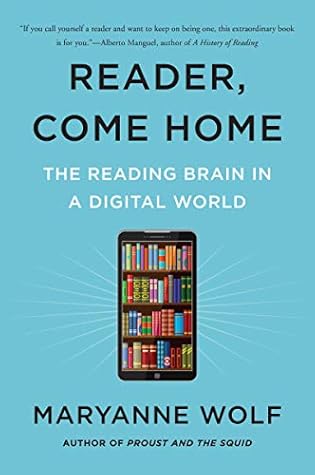More on this book
Community
Kindle Notes & Highlights
The next vanishing act was the heretofore highly anticipated books that always sat at my bedside waiting to be read. In their place in the final minutes of my day came the last emails, so that I could sleep feeling “virtuous,” instead of comforted by a reflection of Marcus Aurelius or stilled by reading the books of Kent Haruf or Wendell Berry, in which little happens, save for the recollected insights of people who are guided by the earth’s rhythms, human love, and tested virtue and whose observations quiet the unquiet mind and restless heart.
Deep reading is always about connection: connecting what we know to what we read, what we read to what we feel, what we feel to what we think, and how we think to how we live out our lives in a connected world.
Years ago the philosopher Martin Heidegger felt that the great danger in an age of technological ingenuity like ours is that it could spawn an “indifference toward meditative thinking. . . .7 Then man would have denied and thrown away his own special nature—that he is a meditative being. Therefore, the issue is the saving of man’s essential nature—the keeping of the meditative thinking alive.” There is no shortage of contemporary observers of our digital culture who worry like Heidegger that the meditative dimension in human beings is threatened—by an overwhelming emphasis on materialism and
...more
Eva Hoffman beseeches us to consider how “the need for reflection, for making sense of our transient condition, is time’s paradoxical gift to us, and possibly the best consolation.”
T. S. Eliot wrote in “Choruses from ‘The Rock,’” “Where is the wisdom we have lost in knowledge?11 Where is the knowledge we have lost in information?”
We are so distracted by and engulfed by the technologies we’ve created and by the constant barrage of so-called information that comes our way, that more than ever to immerse yourself in an involving book seems socially useful. . . . The place of stillness that you have to go to write,19 but also to read seriously, is the point where you can actually make responsible decisions, where you can actually engage productively with an otherwise scary and unmanageable world. . . . —Jonathan Franzen
The atrophy and gradual disuse of our analytical and reflective capacities as individuals are the worst enemies of a truly democratic society, for whatever reason, in whatever medium, in whatever age.
Wisdom, I conclude, is not contemplation alone,28 not action alone, but contemplation in action. —John Dunne


